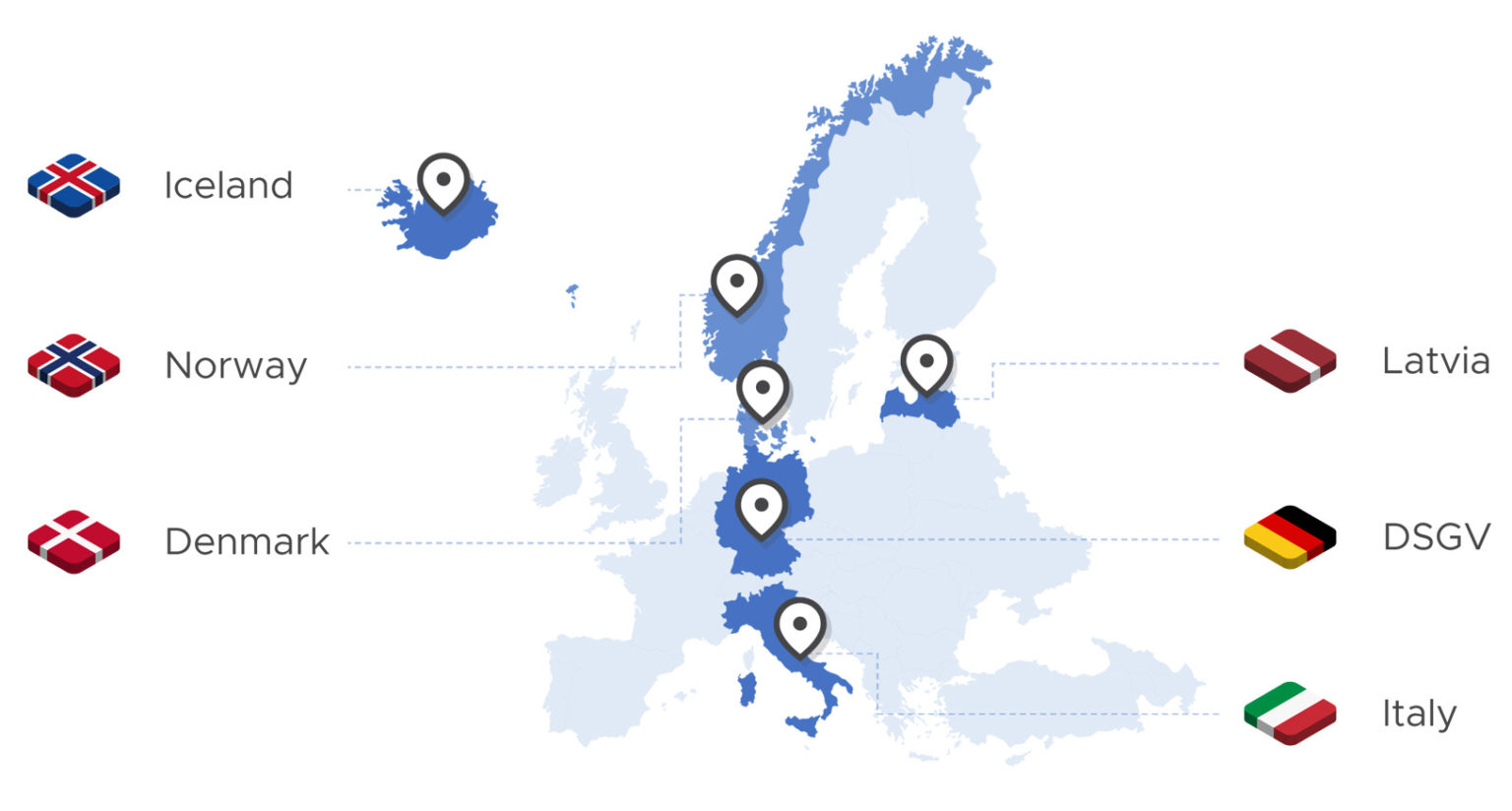Breaking Bread With Scholars: Strategies For Successful Academic Networking

Table of Contents
Identifying and Targeting Key Networking Events
Academic networking isn't about collecting business cards; it's about forging genuine connections. This begins with strategically identifying and attending the right events.
Conferences and Workshops
Conferences and workshops offer invaluable opportunities to meet leading researchers and professionals in your field.
- Identifying Relevant Conferences: Utilize keywords related to your research area in databases like Web of Science and Scopus. Check the websites of professional organizations such as the American Association for the Advancement of Science (AAAS) or relevant discipline-specific societies.
- Maximizing Conference Attendance: Prepare insightful questions beforehand. Actively participate in discussions and presentations. Don't be afraid to approach speakers after their presentations. Exchange contact information (business cards, LinkedIn profiles) and follow up afterward. Attend social events to foster informal networking. Keywords: academic conferences, research conferences, workshops, professional development, networking events.
Seminars and Lectures
University seminars and guest lectures provide more intimate settings for networking.
- Identifying Relevant Seminars and Lectures: Regularly check your university's website and departmental event calendars. Utilize online event listings such as Eventbrite and university-specific event pages. Subscribe to relevant newsletters for announcements.
- Engaging with Speakers and Attendees: Ask insightful questions during Q&A sessions. Approach speakers after their presentations to express your interest in their work. Engage in conversations with other attendees, sharing your research and learning from their experiences. Keywords: academic seminars, guest lectures, university events, research presentations.
Online Networking Platforms
Leverage the power of online academic communities to expand your reach.
- Utilizing Platforms: LinkedIn, ResearchGate, and Twitter are invaluable tools. Join relevant groups and participate in discussions. Share your publications and engage with others' work.
- Creating a Professional Online Profile: Ensure your profile is complete, accurate, and showcases your expertise. Use keywords relevant to your research and career goals. Include a professional headshot and a compelling summary of your work. Keywords: academic networking platforms, LinkedIn for academics, ResearchGate, Twitter for researchers, online academic communities.
Mastering the Art of Conversation: Breaking Bread with Scholars
Successful networking hinges on your ability to engage in meaningful conversations.
Initiating Conversations Effectively
Approaching scholars can feel daunting, but preparation is key.
- Approaching with Confidence: Prepare a brief introduction highlighting your research interests and how they relate to the scholar's work.
- Starting with a Genuine Compliment or Shared Interest: Express genuine appreciation for their work. Mention a specific publication or presentation that resonated with you. Find common ground to build rapport.
- Asking Open-Ended Questions: Avoid yes/no questions. Ask questions that encourage the other person to share their thoughts and experiences. Keywords: networking conversation starters, academic conversation skills, communication skills for academics, building rapport.
Active Listening and Meaningful Engagement
Show genuine interest in what others have to say.
- Focusing on the Speaker: Pay attention to what they're saying, both verbally and nonverbally. Avoid interrupting.
- Asking Follow-Up Questions: Show that you're listening by asking relevant follow-up questions.
- Sharing Relevant Experiences: Share your own experiences and perspectives, but avoid dominating the conversation. Keywords: active listening, communication skills, meaningful conversations, building relationships, academic collaboration.
Following Up After Networking Events
Don't let your connections fade.
- Sending Personalized Thank-You Emails: Send a brief email expressing your gratitude for the conversation and reiterating your shared interests.
- Connecting on Professional Platforms: Connect with individuals on LinkedIn or ResearchGate.
- Suggesting Future Collaborations: If appropriate, suggest potential collaborations or further discussions. Keywords: follow-up emails, networking etiquette, building professional relationships, maintaining contacts.
Building and Maintaining Long-Term Relationships
Networking is a marathon, not a sprint.
Staying in Touch
Consistent communication is vital for nurturing relationships.
- Regular Communication: Send occasional emails sharing relevant research or publications. Engage with their posts on social media.
- Sharing Relevant Research or Publications: Keep your contacts updated on your work and highlight any achievements.
- Offering Support and Assistance: Offer help where appropriate, demonstrating your commitment to the relationship. Keywords: long-term relationships, professional networks, maintaining contact, academic collaborations.
Mentorship and Collaboration Opportunities
Seek out opportunities for growth and collaboration.
- Seeking Mentorship: Identify experienced scholars whose work you admire and consider reaching out for mentorship.
- Collaborating on Research Projects or Publications: Collaboration is a powerful way to build strong relationships and advance your career.
- Building Mutually Beneficial Relationships: Focus on creating relationships that are mutually beneficial, where you can learn from and support each other. Keywords: academic mentorship, research collaboration, academic partnerships, building your network.
Breaking Bread and Building Your Academic Career
Successful academic networking, or "Breaking Bread with Scholars," involves strategically identifying opportunities, engaging in meaningful conversations, and nurturing long-term relationships. By actively implementing these strategies – attending relevant academic conferences, engaging in online academic communities, mastering communication skills for academics, and following up diligently – you can significantly enhance your career prospects. Start building your network today by attending relevant academic events and practicing the art of conversation. Mastering "Breaking Bread with Scholars" will significantly advance your academic career.

Featured Posts
-
 Ripple Xrp News Brazils First Spot Xrp Etf Approved Trumps Ripple Post Sparks Interest
May 08, 2025
Ripple Xrp News Brazils First Spot Xrp Etf Approved Trumps Ripple Post Sparks Interest
May 08, 2025 -
 Arsenal Psg Maci Canli Izleme Rehberi Sifresiz Yayin Secenekleri
May 08, 2025
Arsenal Psg Maci Canli Izleme Rehberi Sifresiz Yayin Secenekleri
May 08, 2025 -
 Champions League Inter Milans Impressive Defeat Of Bayern Munich
May 08, 2025
Champions League Inter Milans Impressive Defeat Of Bayern Munich
May 08, 2025 -
 India Pakistan Relations Understanding The Kashmir Dispute And The Risk Of Conflict
May 08, 2025
India Pakistan Relations Understanding The Kashmir Dispute And The Risk Of Conflict
May 08, 2025 -
 The European Digital Identity Wallet What To Expect
May 08, 2025
The European Digital Identity Wallet What To Expect
May 08, 2025
Latest Posts
-
 Andor Season 2 Delayed Trailer Ignites Fan Speculation And Anxiety
May 08, 2025
Andor Season 2 Delayed Trailer Ignites Fan Speculation And Anxiety
May 08, 2025 -
 Andor Season 2 Trailer Delay Fueling Fan Frustration And Theories
May 08, 2025
Andor Season 2 Trailer Delay Fueling Fan Frustration And Theories
May 08, 2025 -
 Andor Season 1 Where To Stream Episodes 1 3 Hulu And You Tube
May 08, 2025
Andor Season 1 Where To Stream Episodes 1 3 Hulu And You Tube
May 08, 2025 -
 Andors First Look Everything We Hoped For And More In The Star Wars Universe
May 08, 2025
Andors First Look Everything We Hoped For And More In The Star Wars Universe
May 08, 2025 -
 Watch Andor Season 1 Episodes 1 3 Hulu And You Tube Streaming Options
May 08, 2025
Watch Andor Season 1 Episodes 1 3 Hulu And You Tube Streaming Options
May 08, 2025
